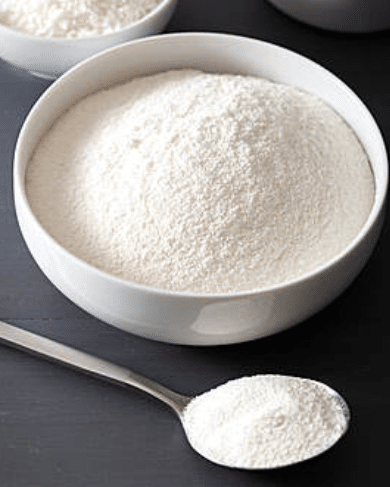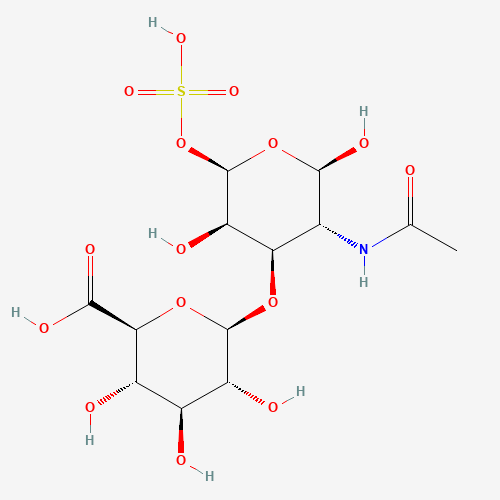
chondroitin sulfate powder
Looking for a dependable Chondroitin Sulfate manufacturer offering Chondroitin Sulfate bulk? Gensei provides high-quality chondroitin sulfate powder for various applications aimed at supporting joint health. Our manufacturing process ensures that our chondroitin sulfate powder meets strict purity and potency standards. As a leading Chondroitin Sulfate manufacturer, we understand the importance of a reliable supply chain and offer Chondroitin Sulfate bulk options to suit your production scale. Partner with Gensei for your Chondroitin Sulfate powder needs and provide your customers with a trusted ingredient for joint support.
Please note: We are a wholesale supplier and have minimum order quantities.
Have questions about this product? Our team is here to help. For inquiries about multiple ingredients, please use the Contact Us option and include the list of ingredients in your message.
Chondroitin Sulfate CAS No.: 9007-28-7 (This is a common CAS number for Chondroitin Sulfate)
Synonyms:
- Chondroitin Sulfuric Acid, Sodium Salt
- Chondroitin Sulfuric Acid
- Chondroitin Polysulfate
CB Number: CB4493789
Molecular Formula: (C₁₂H₁<0xE2><0x82><0x87>NO₁₅SNa)n (where ‘n’ is the number of repeating disaccharide units)
Molecular Weight: Varies depending on the chain length (n), typically ranging from 10,000 to 50,000 Daltons.
MDL Number: MFCD00064411

Chondroitin Sulfate Powder Manufacturing Process Flowchart
Chondroitin Sulfate powder is typically produced by extracting it from animal cartilage tissue.
(e.g., Bovine, Porcine, Avian, or Marine sources)
(Cartilage tissue is cleaned to remove muscle, fat, and other impurities)
(The cartilage tissue is subjected to hydrolysis, often using enzymes or acids, to break down proteins and release glycosaminoglycans including chondroitin sulfate)
(Chondroitin sulfate is extracted from the hydrolyzed mixture using solvents)
(The extract is purified to remove other glycosaminoglycans, proteins, and impurities using techniques like filtration, precipitation, and chromatography)
(The purified solution may be concentrated)
(Chondroitin sulfate is precipitated or crystallized from the purified solution)
(The precipitated chondroitin sulfate is washed to remove residual solvents and impurities)
(The washed chondroitin sulfate is dried to obtain a powder)
(The dried powder may be milled and sieved to achieve desired particle size)
(Testing for purity, molecular weight, sulfate content, and other specifications)
(The Chondroitin Sulfate powder is packaged in suitable containers)
This flowchart provides a general overview of the Chondroitin Sulfate powder manufacturing process from animal cartilage. Specific steps and details may vary depending on the source and manufacturer.
Why Choose Gensei as Your Chondroitin Sulfate Supplier?
As a leading Chondroitin Sulfate manufacturer, Gensei offers unparalleled quality and reliability for your ingredient sourcing needs. We specialize in producing premium chondroitin sulfate powder under stringent quality control, meeting international standards like USP and EP. Our advanced manufacturing processes ensure exceptional purity and consistent molecular weight, crucial for effective pharmaceutical, nutraceutical, and cosmetic applications.
Choosing Gensei means partnering with a Chondroitin Sulfate manufacturer who guarantees supply chain stability and timely global delivery. We provide Chondroitin Sulfate bulk quantities, ensuring you have a reliable source for your large-scale production requirements.
Beyond manufacturing excellence, Gensei provides dedicated customer support and technical expertise regarding our chondroitin sulfate powder. Our knowledgeable team assists with product specifications and any queries, ensuring a smooth partnership.
Choose Gensei as your trusted Chondroitin Sulfate manufacturer and supplier for high-quality chondroitin sulfate powder, dependable Chondroitin Sulfate bulk supply, and confidence in your formulations.
Features and Benefits
- Structure: It is composed of repeating disaccharide units, typically N-acetylgalactosamine and glucuronic acid, with sulfate groups attached at various positions. The sulfation pattern and molecular weight can vary depending on the source and production method.
- Water-Binding Capacity: Chondroitin Sulfate has a strong negative charge due to its sulfate groups, which allows it to attract and hold large amounts of water. This property is essential for the hydration of cartilage.
- Viscoelasticity: The water-binding capacity and the structure of Chondroitin Sulfate contribute to the viscoelastic properties of cartilage, providing cushioning and resistance to compression.
- Role in Cartilage: It helps maintain the structural integrity of cartilage, supports its elasticity, and contributes to the lubrication of joints.
Applications
- Nutraceuticals and Dietary Supplements: This is a major application. Chondroitin Sulfate supplements are popular for supporting joint health, particularly in individuals with osteoarthritis. It is often used in combination with glucosamine.
- Pharmaceuticals: Chondroitin Sulfate is used in some ophthalmic preparations, such as eye drops, for its lubricating and protective properties. It may also be used in formulations for wound healing or tissue repair.
- Cosmetics: Due to its hydrating properties, Chondroitin Sulfate is sometimes included in skincare products like creams and serums to help moisturize the skin and improve its elasticity and appearance.
- Veterinary Medicine: Chondroitin Sulfate is a common ingredient in joint health supplements for animals, particularly dogs and horses, to help support cartilage function and reduce joint pain.
Our State-of-the-Art Manufacturing Facilities
Explore our modern facilities equipped with advanced technology to ensure the highest quality in the production of your vitamins, herbal extracts, minerals, and amino acids.











FAQs
Chondroitin sulfate is generally not known to significantly raise blood pressure when taken at recommended dosages. However, individuals with high blood pressure should consult their doctor before taking it, especially if they are sensitive to sodium, as it is often available as the sodium salt.
Chondroitin sulfate is a major component of cartilage. It works by helping to retain water in the cartilage, contributing to its elasticity and cushioning properties. It may also help inhibit enzymes that break down cartilage and support the production of new cartilage components.
The typical dosage of chondroitin sulfate for joint health is 800-1200 mg per day, often divided into two or three doses. It's best to follow the dosage recommendations on the product label or consult with a healthcare professional.
Chondroitin sulfate is generally considered safe for most people when taken at recommended dosages. However, it can cause mild gastrointestinal side effects in some individuals. It may also interact with certain medications, so consulting a healthcare professional before use is recommended.
Research comparing glucosamine chondroitin combination supplements to glucosamine sulfate alone has yielded mixed results. Some studies suggest a combination may be more effective for moderate to severe osteoarthritis pain, while others show similar results to glucosamine sulfate alone. Individual response can vary.
No, glucosamine sulfate and glucosamine chondroitin are not the same. Glucosamine sulfate is one compound, while glucosamine chondroitin refers to a supplement that contains both glucosamine and chondroitin sulfate.
Glucosamine and chondroitin sulfate are not typically found in significant amounts in common foods. They are structural components of animal cartilage, which is not regularly consumed in diets. Supplements are the primary way to obtain these compounds.
Chondroitin sulfate is primarily good for supporting joint health, particularly in individuals with osteoarthritis. It may help reduce joint pain, stiffness, and swelling, improve joint function, and slow the progression of cartilage breakdown.
Traditional chondroitin sulfate is made from the cartilage of animals, such as cows (bovine), pigs (porcine), birds (avian), or fish (marine). Vegan chondroitin sulfate is produced through fermentation. Chemically, it is a polysaccharide composed of repeating disaccharide units containing N-acetylgalactosamine and glucuronic acid, with sulfate groups.
In the body, chondroitin sulfate is naturally found in connective tissues, particularly in the cartilage that cushions joints.
Yes, chondroitin sulfate is commonly used in veterinary medicine as a supplement for dogs to support joint health and help manage symptoms of osteoarthritis. It is generally considered safe for dogs when given at appropriate dosages recommended by a veterinarian.
Common side effects of chondroitin sulfate are usually mild and may include gastrointestinal upset such as nausea, diarrhea, or stomach pain. Rarely, other side effects like headache or rash may occur. It is generally well-tolerated.

